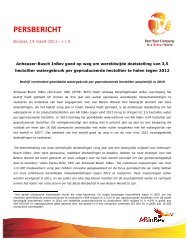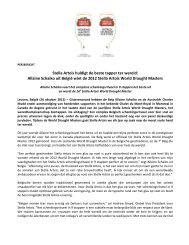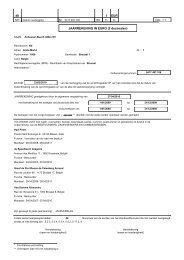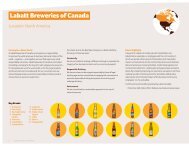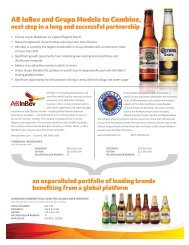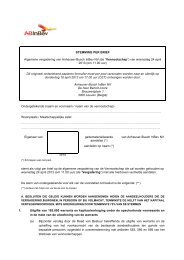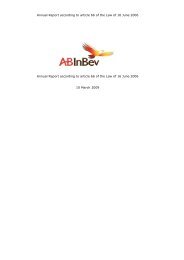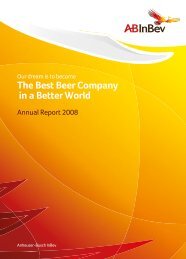People
People
People
Create successful ePaper yourself
Turn your PDF publications into a flip-book with our unique Google optimized e-Paper software.
We endeavour to follow these principles when considering changes to our operations that may have an impact on employment,<br />
and therefore require consultation with trade unions. In addition to the principles, at Zone level we will apply the highest<br />
standards of employment regulations from within the Zone to employment restructuring in all the countries of the Zone,<br />
where this is legally possible. The principles are applied based on local circumstances and regulations but take into account<br />
international (e.g. EU standard) requirements where possible.<br />
The principles align with our communication process relating to employment changes. The process consists of four<br />
steps as follows :<br />
• Announcement of Study. In most cases we inform stakeholders when we start an efficiency study. This is not legally required<br />
but has the advantage of avoiding rumor, allowing employees to be prepared and letting those areas that will not be affected<br />
by the study know.<br />
• Announcement of Intention. This is legally required when a company intends to change its structure and it triggers the<br />
process of consultation about potential social consequences.<br />
• Announcement of Decision. Legal requirements at this stage vary in format, procedure and timing. As these legal processes are<br />
sometimes contradictory, this stage triggers negotiation for a formal agreement between InBev and the union(s) concerned.<br />
• Implementation. Execution of the change and agreed social plan.<br />
Collective bargaining across our Zones<br />
Participation in collective bargaining by Zones<br />
InBev Citizenship 08<br />
Number % of region workforce<br />
Western Europe 8 562 79.6%<br />
Central & Eastern Europe 7 181,3 48.6%<br />
North America 2 697 92.2%<br />
Latin America (North & South) 29 589,7 85.0%<br />
Asia Pacific Data not available Data not available<br />
Data are not available from all countries of our zones. Currently 74.1% of InBev employees are included in the calculation used to report against this indicator.<br />
The remaining data will be provided in our 2010 Global Sustainability Report in August 2010. The data exclude: Italy, Spain, Bulgaria, Croatia, Hungary, the US,<br />
Australia, Singapore and China. Of these countries, a significant proportion of employees are in China. Our recently acquired operations in China have two years to<br />
align to the InBev VPO management, monitoring and reporting protocols, including human resources figures. Reliable, accurate and complete data are not yet<br />
available from operations in China. If we therefore omit China from our calculations for this indicator the proportion of employees excluded falls to 2.4%.<br />
InBev employees are able to maintain a good level of collective representation, unionization and involvement in company<br />
decision-making through works councils. Collective bargaining agreements are in place across InBev’s Zones. Of all our<br />
employees across all Zones, 74.5% are covered by collective bargaining agreements. The extent of employee involvement<br />
in decision-making such as via works councils varies across the organization. All but one of our country teams report this<br />
information to varying degrees of completeness. Variations arise due to legal definitions and privacy laws. China – the key<br />
country in the Asia Pacific Zone - has begun to integrate its people data with our global system. Our managers there are<br />
focusing on integrating the business and related cultural systems, working on SAP activities and shared services. Timescale to<br />
being able to provide this information is estimated at one year.<br />
Employment Regulations<br />
InBev is committed to protecting employee rights at all times. InBev employees have access to a correct level of collective<br />
representation, unionization and involvement in company decision making through works councils and other forms of employee<br />
representation. A structured interaction between InBev and its employees has always been a main concern for the company.<br />
InBev was one of the first companies to have created an information and consultation body with employee representatives<br />
throughout Europe - InBev’s European Works Council (the EWC). InBev’s EWC complements local information and<br />
consultation bodies and enables consultation on strategic matters.<br />
<strong>People</strong> and Community 27




